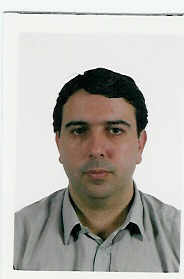| Pages in topic: [1 2] > | note-taking in consecutive interpreting Thread poster: Lish
|
|---|
Lish
Romanian to English
+ ...
Hi!
I'm a Romanian student and I've only recently started to dabble in the Wonderland that is consecutive interpreting. My first class was three weeks ago so I'm as green they come.
Unfortunately, our designated tour guide through Wonderland is umm... less than qualified for the job, so to speak. OK, let's face it: she stinks! She spent about 20 minutes talking about the crucial importance of note-taking, drew some circles and some arrows and decided that note-taking i... See more Hi!
I'm a Romanian student and I've only recently started to dabble in the Wonderland that is consecutive interpreting. My first class was three weeks ago so I'm as green they come.
Unfortunately, our designated tour guide through Wonderland is umm... less than qualified for the job, so to speak. OK, let's face it: she stinks! She spent about 20 minutes talking about the crucial importance of note-taking, drew some circles and some arrows and decided that note-taking is like religion: it's personal and intrinsically linked to one's inner world. So I've spent the last three weeks doodling and scribbling gibberish on notepads until I realized that I'm slowly turning into a born-again atheist.
My soul needs saving. I'm pretty good at simultaneous interpreting (well, about as good as any student who's been doing it for only three weeks can be) but I'm in dire need of some advice on note-taking. I need some kind of system, my own personal dogma. I'd better stop before the religious analogies get really annoying.
Lish ▲ Collapse
| | | | | Find your own signs | Oct 28, 2004 |
Hi there,
when I was learning consecutive interpretation I was taught to write down only what's difficult for me to remember and if you can only take note of a couple of things, then let them be "connectors".
Basically you may be and should be able to remember "what the story is about", and if you can get the connectors, the reason + the consequence down on paper that pretty much helps you repeat the story "logically".
What I finally did, I took a good old... See more Hi there,
when I was learning consecutive interpretation I was taught to write down only what's difficult for me to remember and if you can only take note of a couple of things, then let them be "connectors".
Basically you may be and should be able to remember "what the story is about", and if you can get the connectors, the reason + the consequence down on paper that pretty much helps you repeat the story "logically".
What I finally did, I took a good old grammar and invented a sign for each "because", "in order to", "but" etc...and I always try to make sure I get them on the paper.
An example: you hear and thereafter remember "car" and "Paris"...in order not to utter "He had a car and then he went to Paris"...you take a note or draw a sign for "in order to" and voilá, you will remember "He bought a car in order to drive to Paris".
I hope this helped even a bit.
Good luck, Katja ▲ Collapse
| | | | Pat Jenner (X)
Local time: 13:49
German to English
+ ...
Hi Lish,
I expect you're feeling a bit like Alice (or maybe the Mad Hatter) at the moment. The whole point of note-taking in consecutive is that it is there to help you, you are not a slave (or priest!) to it. Unfortunately only experience will tell you what kind of system you prefer (for instance, making extensive notes or just putting down the bare essentials and relying on memory). One thing that you might find helpful is to structure your page into three sections (left, middle a... See more Hi Lish,
I expect you're feeling a bit like Alice (or maybe the Mad Hatter) at the moment. The whole point of note-taking in consecutive is that it is there to help you, you are not a slave (or priest!) to it. Unfortunately only experience will tell you what kind of system you prefer (for instance, making extensive notes or just putting down the bare essentials and relying on memory). One thing that you might find helpful is to structure your page into three sections (left, middle and right). In the left-hand area you could put notes indicating who is speaking, a change of topic, etc. The middle section is useful when you have lists of things in the same category (for instance, exports last year to a number of countries). Use the right-hand column for less important details. Practice as much as you can with fellow students to find out what works for you. And train your short-term memory.
I'd also recommend Roderick Jones' book Conference Interpreting Explained (ISBN 1-900650-57-6). It's mainly about simultaneous but has a chapter on note-taking.
Good luck ▲ Collapse
| | | | CMJ_Trans (X)
Local time: 14:49
French to English
+ ...
I have always found it helpful to take notes in the langauge that I am translating into i.e. if doing French-English, then write odd words in English and vice versa.
It is also very important to note dates, numbers and proper names (phonetically, if necessary). Even when people do not speak the other language, the always recognise names and numbers and notice if you get them wrong.
Otherwise you will soon see a pattern emerging of frequent words such as "national", "international", "... See more I have always found it helpful to take notes in the langauge that I am translating into i.e. if doing French-English, then write odd words in English and vice versa.
It is also very important to note dates, numbers and proper names (phonetically, if necessary). Even when people do not speak the other language, the always recognise names and numbers and notice if you get them wrong.
Otherwise you will soon see a pattern emerging of frequent words such as "national", "international", "world" etc. Try to have an easy symbol for these. And, as said before, remember the importance of the link words.
HTH
Chris ▲ Collapse
| | |
|
|
|
| some crucial points and THE crucial point | Oct 28, 2004 |
1- As Katia said create your own signs. How? I got inspired my mathematics, ideograms, road signs, colleagues signs etc.
2- Take an article in your native language, jot down the sentences in your pad as if you were doing a consec.
3 - Concentrate on links (because, therefore etc.).
Draw a margin where you can write your links.
4 - Always write in the target language.
5 - Practice
But, and this is the crucial point, as all my teachers said "listen, list... See more 1- As Katia said create your own signs. How? I got inspired my mathematics, ideograms, road signs, colleagues signs etc.
2- Take an article in your native language, jot down the sentences in your pad as if you were doing a consec.
3 - Concentrate on links (because, therefore etc.).
Draw a margin where you can write your links.
4 - Always write in the target language.
5 - Practice
But, and this is the crucial point, as all my teachers said "listen, listen, listen".
Succes. E greu.
Paola
PS Almost everybody prefers the sim, but if you apply for a test in Brussels, well... You need a good consec ▲ Collapse
| | | | Aleksandr Okunev (X)
Local time: 15:49
English to Russian
she stinks! She spent about 20 minutes talking about the crucial importance of note-taking, drew some circles and some arrows and decided that note-taking is like religion
I had a teache like that too, with lottsa enigmatic rules and cryptic symbols, a complete idiot, but I did regret I had not been attentive when I started working 5-12 hours a day doing consecutive translation.
Pay less attention to how self-centered she is, but think positively, ask questions and ***take notes*** of the lectures!
2 more cents:
- ***always*** have 2 pens and a notepad;
- ***never*** miss a numeral and a proper name.
I am not certain about those symbols, when I grew old I simply started to shut them up, 99% take is well, the remaining 1% will screw you regardless.
Good luck!
Aleksandr
| | | | | Just imagine... | Oct 28, 2004 |
...that you would have to explain something as nebulous as that.
I imagine it to be relatively difficult, seeing as how every person has a different way of storing and retrieving information they have in their heads.
I've never attempted simultaneous interpretation, with the exception of interpreting the lyrics of songs playing on the radio to my wife and friends, but I have done quite a lot of consecutive interpreting - mostly in a business setting with 10 to 15 partic... See more ...that you would have to explain something as nebulous as that.
I imagine it to be relatively difficult, seeing as how every person has a different way of storing and retrieving information they have in their heads.
I've never attempted simultaneous interpretation, with the exception of interpreting the lyrics of songs playing on the radio to my wife and friends, but I have done quite a lot of consecutive interpreting - mostly in a business setting with 10 to 15 participants, which made things incredibly complex.
I found taking notes while LISTENING definitely very useful in the beginning. That way I could retain more information and I had to interrupt the speaker less often. This increased the quality of what was being spoken, which in turn automatically increased the quality and exactness of my consecutive interpretation. My personal symbols consisted of ARROWS and KEY WORDS, like 'then', 'and', 'because', etc. With time, however, I found I was taking less and less notes, only writing down NAMES, DATES and AMOUNTS.
As I said, every person has a different way of going about it. I don't think that another person's symbols will necessarily help you take notes (the CONNECTIONS are important). They may, however, give you an idea of what is possible, allowing you to create your own symbols and ways of taking notes.
On the other hand, there are probably some, who may feel that taking notes draws away from their ability to LISTEN to and RETAIN the information that is being spoken.
In other words, I wouldn't view these things your teacher is trying to teach you as RELIGION, but rather as EXAMPLES of what can be done. Most of the time, teachers genuinely want to teach their student something useful, though there are always exceptions.
Have fun interpreting; I did!
[Edited at 2004-10-28 19:42] ▲ Collapse
| | | | PAS 
Local time: 14:49
Polish to English
+ ...
| signs symbols and other consecutive arcana | Oct 28, 2004 |
Initially I started taking notes in CI without really meaning to.
My first pitfall was the inability to divide my attention. I started to write something down and I stopped listening to the speaker. How amusing that was...
So, IMHO, you need to train listening and writing at the same time.
Just have someone say something while you interpret and take notes. Listen to longer phrases than you're comfortable with to train your memory and develop your note-taking skill... See more Initially I started taking notes in CI without really meaning to.
My first pitfall was the inability to divide my attention. I started to write something down and I stopped listening to the speaker. How amusing that was...
So, IMHO, you need to train listening and writing at the same time.
Just have someone say something while you interpret and take notes. Listen to longer phrases than you're comfortable with to train your memory and develop your note-taking skills.
Anyway, I mostly write down lists and/or numbers.
I write condensed versions of concepts if the speaker "runs away" and I know I won't be able to remember it all.
I won't suggest any symbols I use. You have to make up your own. I think if you copy from someone, it will only add to the stress - you'll either forget what symbol to use or you'll use it and then forget what it stands for.
HTH
Pawel Skalinski
Warsaw, Poland ▲ Collapse
| | |
|
|
|
| what to note and what not to note: imho | Oct 28, 2004 |
I personally _always_ have trouble remembering numbers and names. Those are the things i always write down. I often write down words that are key to a sentence (in full - only abbreviate what is easy for you to recognise). For example:
Our company was founded in 1993 following the break up of the Soviet Union and has since grown to be a market leader in the production of fridges, with rep offices in the Middle East, Eastern Europe, the Americas and other parts of the world.
<... See more I personally _always_ have trouble remembering numbers and names. Those are the things i always write down. I often write down words that are key to a sentence (in full - only abbreviate what is easy for you to recognise). For example:
Our company was founded in 1993 following the break up of the Soviet Union and has since grown to be a market leader in the production of fridges, with rep offices in the Middle East, Eastern Europe, the Americas and other parts of the world.
In my notes this would look like:
1993, SU, leader fridge, Mid. E, EE, Amer, etc.
If not for the figures I probably wouldn't bother taking down the other stuff, but they can often make me lose my rhythm a little bit.
Now all this could be totally irrelevant to you, hence you need to find what is YOUR problem area. I think what is the most important thing is trying to _really_ understand what the person(s) speaking is talking about. I find that once I can almost predict what the next line is going to be, interpreting becomes really easy, then I calmly pour myself a cup of tea and put the notepad down.
I agree on the 2 pens and notepad, half the time my pen and paper get borrowed at informal business meetings!
The main thing, as someone has already mentioned, is make sure you are not a slave to your notepad, if you don't need notes, don't take them - listening, noting and thinking about what you're going to say is not easy - you may find that if you concentrate on listening and thinking, you don't need to take notes.
You really need to practise before you go out into the real world and don't summarise text - reading and listening are VERY different.
Good luck ▲ Collapse
| | | | Almir Comor MITI 
Bosnia and Herzegovina
Local time: 14:49
Member (2004)
English to Croatian
+ ...
| | Last option.... | Oct 28, 2004 |
Remember you can always ask them to repeat what they said.
Good luck...
| | | | Lish
Romanian to English
+ ...
TOPIC STARTER
The title's self-explanatory, isn't it?
I'm impressed to see that so many professionals are willing to help a clueless rookie like me. Your advice shall be put to good use.
I understand how important it is to find your own pace and your own system but I needed some hints to get me started. So it's back to Wonderland, with renewed confidence.
Lish
| | |
|
|
|
| Books on note-taking for consecutive interpreting | Nov 18, 2004 |
Hi,
I've just graduated from the M.A. course in conference interpreting and I've been through the Wonderland you've been talking about...
I was fortunate enough to attend a very thorough couse of note-taking for consecutive interpreting in Germany, which indeed helped me find my own way through Wonderland...
The most helpful books were
Heinz Matyssek - Notizentechnik fuer Konsekutivdolmetscher (in German)
and
Jean Francois Rozan - La prise de notes en interpr... See more Hi,
I've just graduated from the M.A. course in conference interpreting and I've been through the Wonderland you've been talking about...
I was fortunate enough to attend a very thorough couse of note-taking for consecutive interpreting in Germany, which indeed helped me find my own way through Wonderland...
The most helpful books were
Heinz Matyssek - Notizentechnik fuer Konsekutivdolmetscher (in German)
and
Jean Francois Rozan - La prise de notes en interprétation consécutive (in French - I've read it was republished in 2003 in English).
I've also written my B.A. thesis on the topic, so if you need more info, feel free to contact me.
Greetings,
Raluca ▲ Collapse
| | | | | dates, numbers, names | Nov 24, 2004 |
When I had my training my tutor taught us that the most important things to note are dates, numbers and names, and she drilled it into us to always always write these down, regardless what method you choose to note taking.
Just my two cents...
| | | |
[quote]Raluca Furnea wrote:
I've also written my B.A. thesis on the topic, so if you need more info, feel free to contact me.
[quote]
Hi!
I'm graduating this summer. My major is I/T. But I haven't really practiced yet, though...
I'm here to ask for help in finding materials and advice on note-taking as I'm writing a pre-research thesis on this topic. I need as much information as one can give me: experience (I've read the above - very interesting )), books, news, anything )), books, news, anything ) )
Dear Raluca,
could u please give me some advice on where to find the needed information, preferrably, on the web.
my e-mail address is [email protected]
I'll be very greatful for your help )) ))
Take care,
Anna
| | | | | Pages in topic: [1 2] > | To report site rules violations or get help, contact a site moderator: You can also contact site staff by submitting a support request » note-taking in consecutive interpreting | Anycount & Translation Office 3000 | Translation Office 3000
Translation Office 3000 is an advanced accounting tool for freelance translators and small agencies. TO3000 easily and seamlessly integrates with the business life of professional freelance translators.
More info » |
| | Wordfast Pro | Translation Memory Software for Any Platform
Exclusive discount for ProZ.com users!
Save over 13% when purchasing Wordfast Pro through ProZ.com. Wordfast is the world's #1 provider of platform-independent Translation Memory software. Consistently ranked the most user-friendly and highest value
Buy now! » |
|
| | | | X Sign in to your ProZ.com account... | | | | | |












